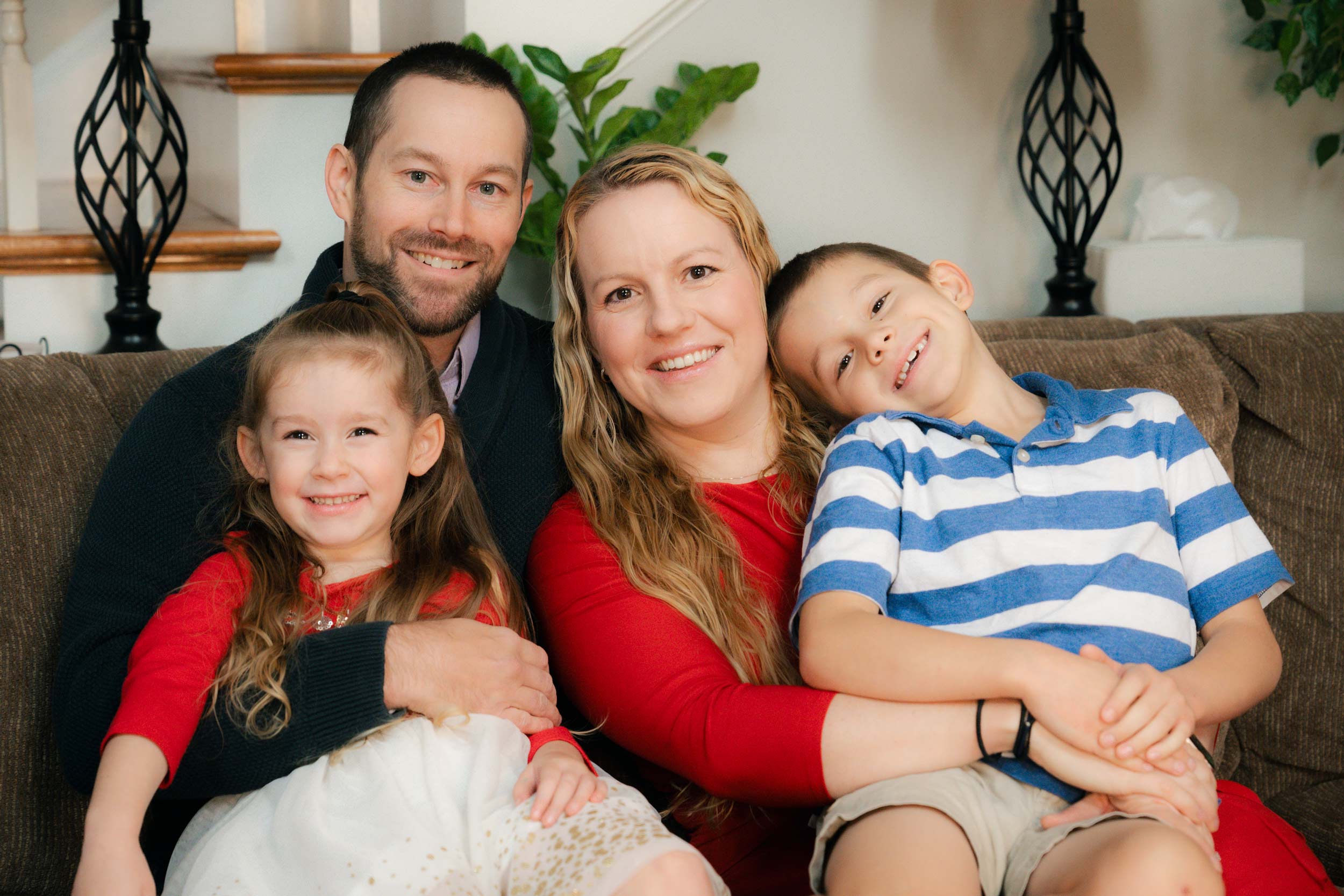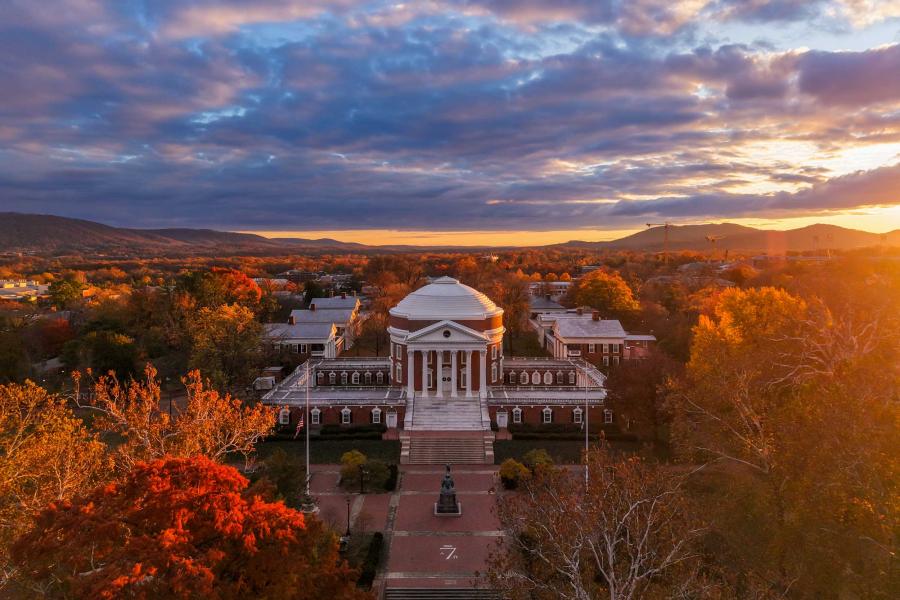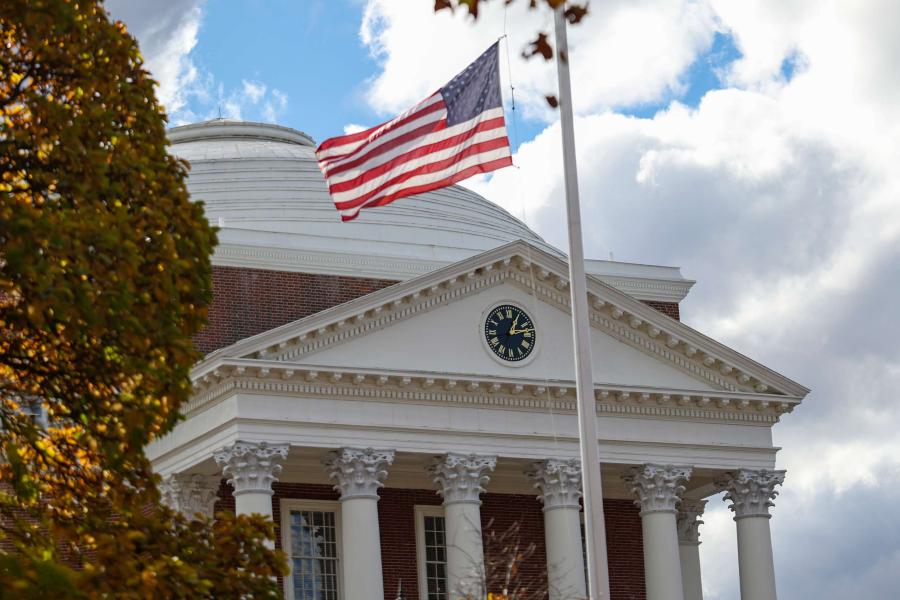Last March, Katie Walker woke to a disturbing sound.
It was nearly midnight; she and her husband Andrew were sleeping, their two young children tucked in their rooms across the hall in the family’s Charlottesville home.
“(Andrew) let out a huge gasping inhale and it sounded really wrong,” she recalled. “So, I turned on the light. His eyes were wide open and just dead. So that’s when I grabbed my phone, called 911, then put on speaker (phone) and started CPR.”
The dispatcher counted aloud to help pace Walker as she put one hand over the other, keeping her arms straight, and pressed Andrew’s chest hard and vigorously. Experts advise administering 100 to 120 chest compressions a minute, pushing down at least two inches each time to create an artificial pump doing the work of the heart.
Timing is critical. Fewer than one in 10 people experiencing sudden cardiac arrest outside of a hospital survive.
As Katie wept and frantically pumped, with 911 still on the line, a fire engine sped from Seminole Trail Volunteer Fire Department carrying six EMTs, including two University of Virginia student volunteers. Google Maps predicted the fastest route to the Walker home would take 11 minutes. The Cleveland Clinic says a person’s survival rate drops by 10% as each minute passes.
As the fire engine, ambulance and two police cars raced to the scene, Katie, still performing CPR, suddenly recalled something with a sense of horror. The front door was bolted shut. The house alarm system was on. Disabling both to let in the rescuers would add precious seconds to an already ticking clock.
The 911 dispatcher, who was in training that night, told Katie she would tell her exactly when to leave Andrew, who had no pulse, to race down the stairs and open the door for the crew.
First To ‘Pull the Brake’
“We were the first people to pull our parking brake,” said Grant Williams – then a fourth-year student, now a graduate – who said the Seminole Trail crew was the first on the scene.
“I think the wife came out crying. I don’t know,” added Colin Fogarty, now a fourth-year student. “Then it was just (running) upstairs to the room.”
Fogarty took over the chest compressions while Williams began to ventilate Andrew, working to get oxygenated blood flowing again. “His wife presumably had been doing (compressions) for the 10 minutes before we got there, which is exhausting and notable,” Williams said.
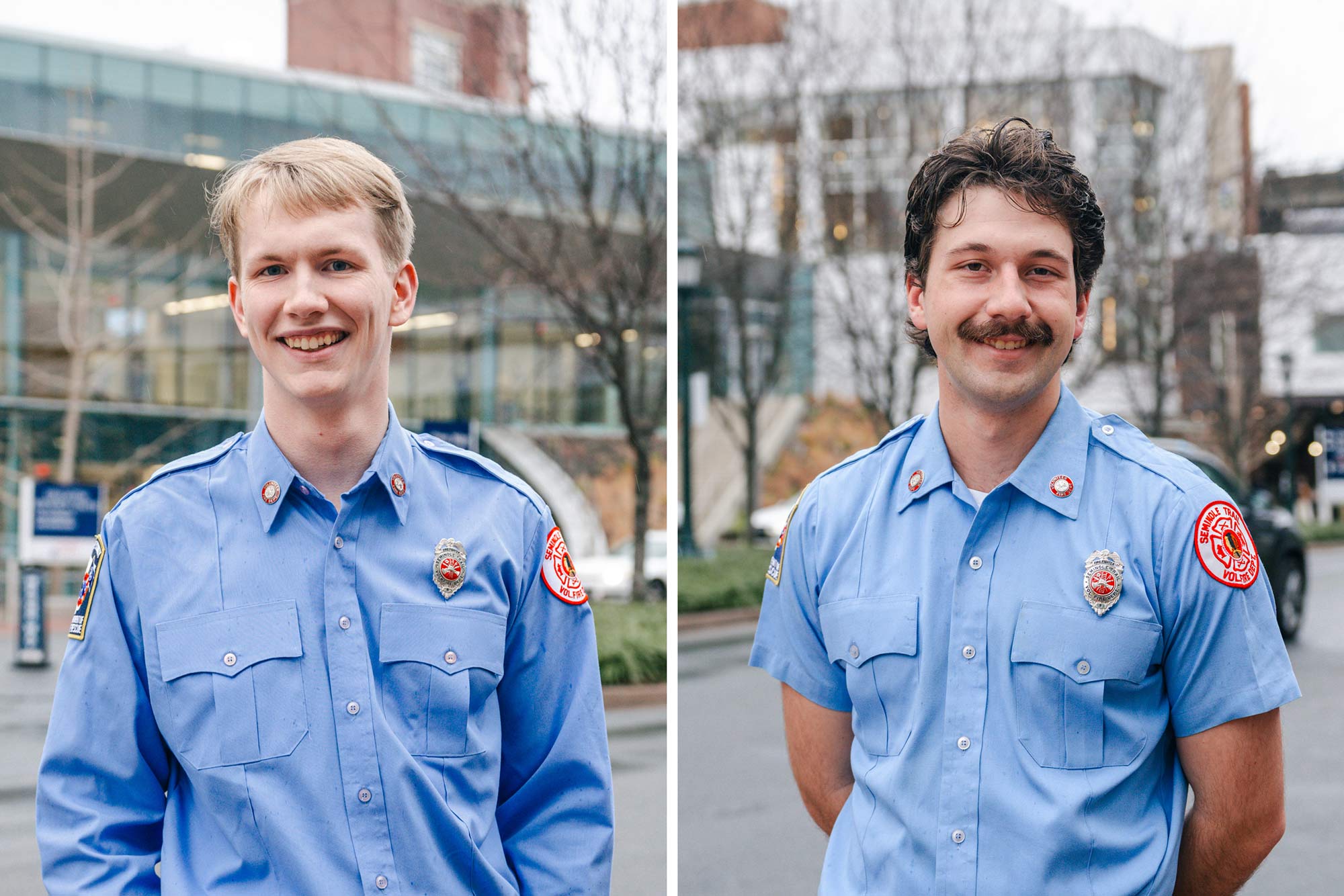
Grant Williams, a 2024 graduate of UVA, and Colin Fogarty, now a fourth-year student, performed life-saving treatment on Walker. (Photos by Emily Faith Morgan, University Communications)
That’s because EMTs typically take four-minute shifts, but Katie had been at it much longer. Her last CPR training had been 12 years ago. Where did that muscle memory come from?
“I don’t know,” she said.
The rescue crew worked on Andrew for about 15 minutes. They used automated external defibrillator pads to shock his heart back into rhythm. The first jolt worked. Andrew’s heart muscle resumed pumping, like a fist squeezing involuntarily. But then it stopped.
“So, (he) came back to life and then fell out again, so effectively died again; (another) shock and then that’s when he was ultimately brought to” UVA Health University Medical Center, Williams said.
Another Call for Help
Once the rescue team took over for Katie, she began frantically calling friends and family. Most calls, except those to family in Arizona and California, went to voicemail.
Then she decided to call her boss, Jennifer “J.J.” Davis, UVA’s executive vice president and chief operating officer. Katie Walker is UVA’s assistant vice president for financial planning and analysis at UVAFinance, which ultimately reports to Davis.
“I knew she’d probably answer,” Katie said. Davis did. The time stamp on the call was 12:27 a.m.
“She coached me,” Katie said. “She said, ‘Take an Uber. Don’t drive yourself to the hospital. Take a change of clothes,’” Katie relayed. “In the morning, she brought coffee, breakfast, a notebook with a pen so I could write down what the doctors were saying because ‘you’re going to forget,’” Davis advised her.
“All around, a level of care you wouldn’t know,” Walker said.
Andrew’s medical event came four days after he turned 36. He returned home from the hospital – with no neurological deficiencies, despite how long he had been without normal heart function – on April 3, Katie’s birthday.
‘They Have a Dad Because of Everyone in This Room’
In November, Katie and Andrew asked to hold an event at UVA Health University Medical Center to thank all the people who saved Andrew’s life.
Andrew recounted the fateful evening. “That day, I taught class in the evening; I’m an adjunct instructor at UVA (in the School of Architecture). I had dinner, went to bed and the next thing I remembered was waking up in the hospital several days later,’” he said.
Andrew thanked the approximately 25 people assembled, including 911 dispatchers, doctors, police officers and Williams and Fogarty.
“I have two kids, an 8-year-old boy and a 4-year-old girl. And I’m happy to still be around,” he said. “There really aren’t words to thank everyone because of how much you deserve it. They have a dad because of everyone in this room.”
A Christmas To Remember
This Christmas will be the Walker family’s first since the events of last March. Eight-year-old James said, “I’m thankful that my dad survived his heart attack.”
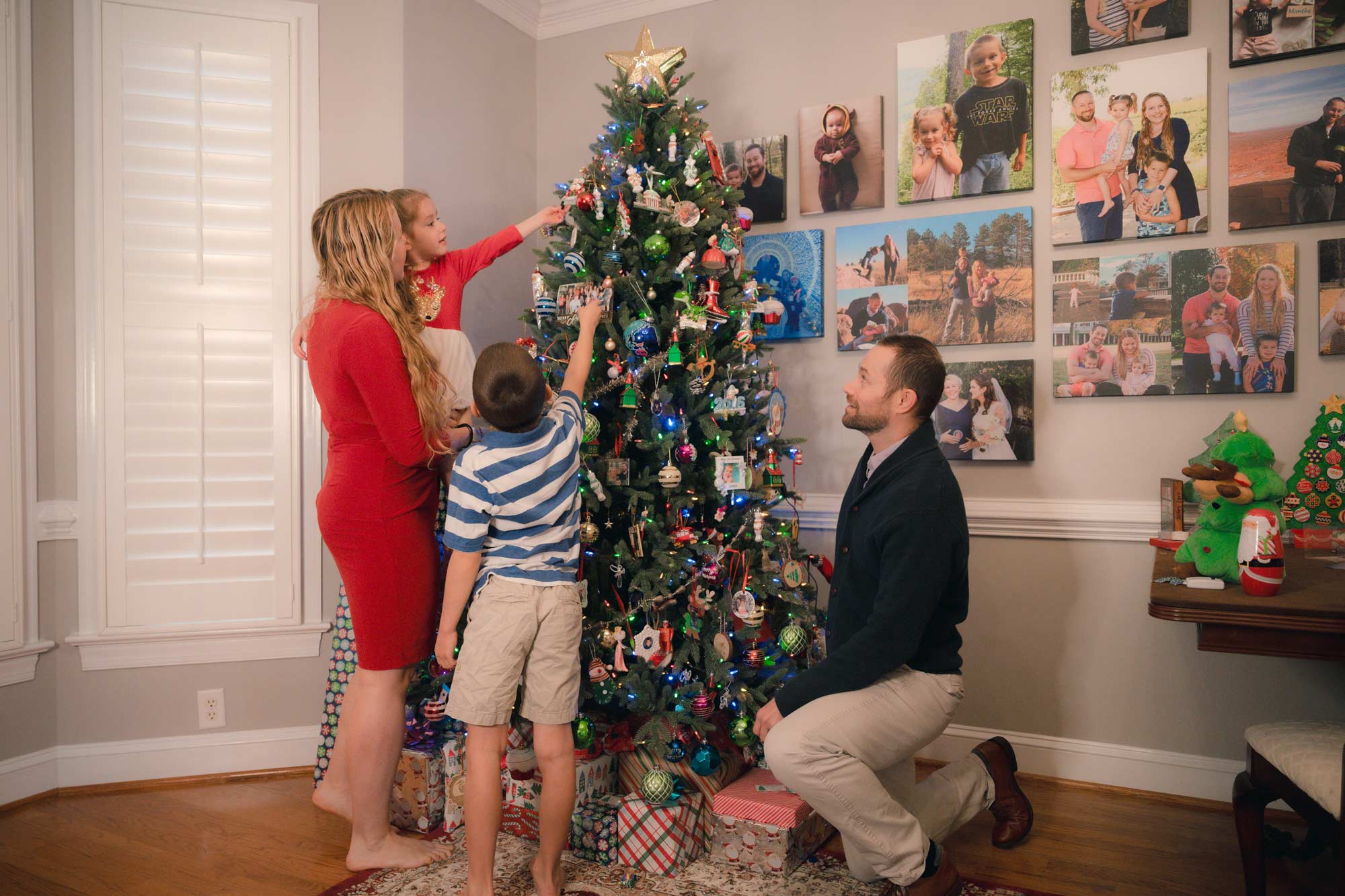
Andrew Walker says his children still have a father because of the large rescue team that got him safely to UVA Health University Medical Center after he suffered sudden cardiac arrest. (Photo by Emily Faith Morgan, University Communications)
Asked what she is grateful for, 4-year-old Lily’s answer was a bit different. “Um, getting ‘pwesents,’” she said, her toddler tongue unable to form the “r” sound when pronouncing “presents.” Lily said she is also looking forward to playing in the snow.
One of Katie’s Christmas wishes is simple. She wants everyone to learn CPR. “Find training near you. Get a group involved. If you do find yourself in an emergency, seek help quickly,” she said.
And don’t be comforted by being younger, she advised.
